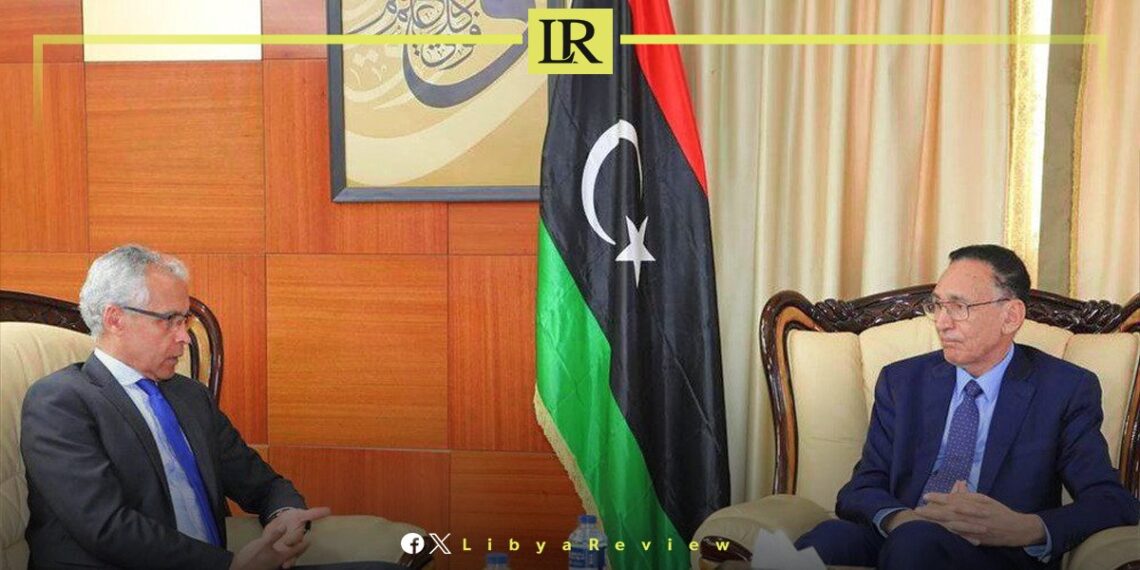On Thursday, Mohamed Al-Hwaij, Libya’s Minister of Economy and Trade, met with the French Ambassador to Libya, Mostafa_Mihraje, to discuss strengthening economic ties between the two nations.
During the meeting at the Ministry’s headquarters, Minister Al-Hwaij emphasized the significance of collaboration with French enterprises in sectors such as agriculture, livestock, food security, and human resource development. He encouraged French investments in Libya’s energy, oil, and gas industries as part of Libya’s broader economic diversification and development strategy.
The Libyan Minister assured that the Libyan government is prepared to offer all necessary support to facilitate French companies and investors entering the Libyan market. This initiative aims to establish solid partnerships that can drive forward Libya’s economic recovery.
On his part, the French Ambassador highlighted plans to organize a joint economic forum in Tripoli in 2024. He also noted efforts to streamline visa processes for Libyans through the embassy’s office in Tripoli by the end of this year.
Additionally, Al-Hwaij invited French firms to participate in the upcoming Tripoli International Fair in May 2024. He stressed the importance of the French embassy in Libya issuing visas directly to facilitate business exchanges and travel.
The Minister directed his Department of Foreign Trade and International Cooperation to work closely with the French Embassy’s commercial office to activate existing agreements and memorandums of understanding, aiming to deepen and expand the economic relationships between Libya and France.
Libya has been in chaos since a NATO-backed uprising toppled longtime leader Muammar Gaddafi in 2011. The county has for years been split between rival administrations.
Libya’s economy, heavily reliant on oil, has suffered due to the ongoing conflict. The instability has led to fluctuations in oil production and prices, impacting the global oil market and Libya’s economy.
The conflict has led to a significant humanitarian crisis in Libya, with thousands of people killed, and many more displaced. Migrants and refugees using Libya as a transit point to Europe have also faced dire conditions.
The planned elections for December 2021 were delayed due to disagreements over election laws and the eligibility of certain candidates. This delay has raised concerns about the feasibility of a peaceful political transition.
Despite the ceasefire, security remains a significant concern with sporadic fighting and the presence of mercenaries and foreign fighters. The unification of the military and the removal of foreign forces are crucial challenges.


